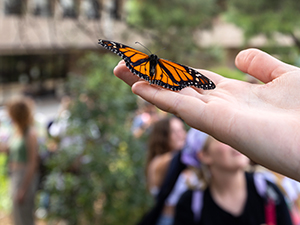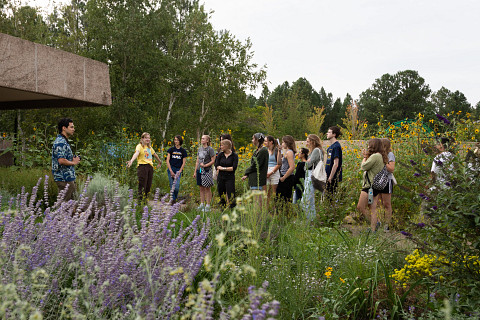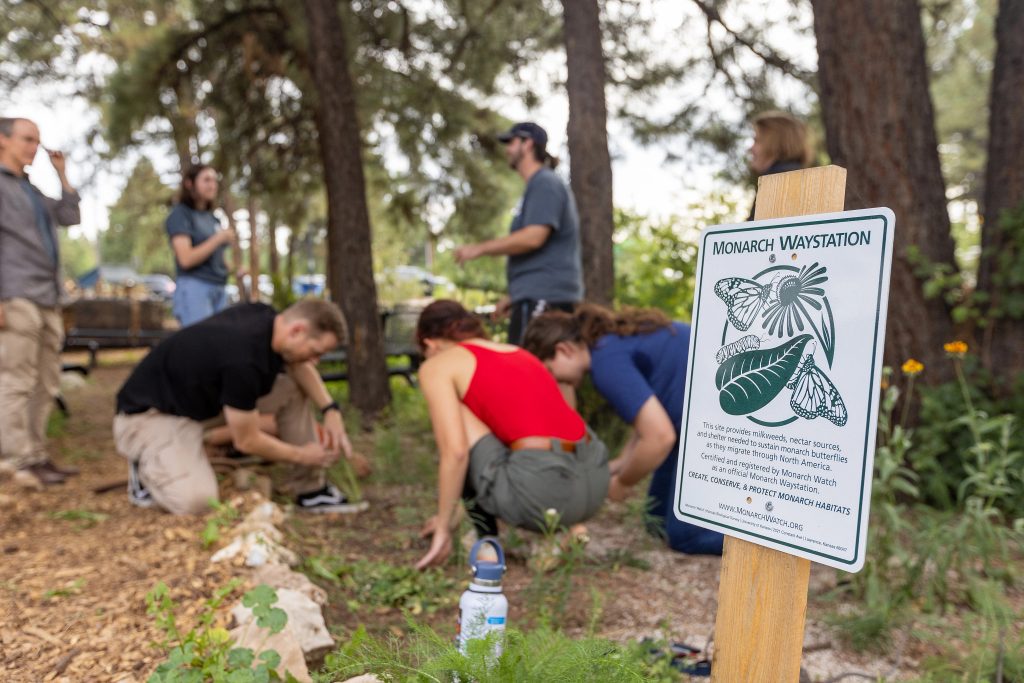Small, black stripes accentuate brilliant golden-orange wings in a flutter of vibrant colors. These vivid markings make monarch butterflies the most recognizable butterfly in North America. As an essential species to the health of our planet, monarch butterfly populations are declining because of habitat loss and climate change, and a group of interns at Northern Arizona University are stepping in to help restore this iconic pollinator.
The Monarch Butterfly Intern Program, led by Rich Hofstetter and Regents’ professor emeritus Mike Wagner, brings awareness to monarch butterfly conservation to combat the rapid decline of this iconic species. Through their nonprofit, Arizona Milkweeds for Monarchs, interns grow native milkweed plants, a nutrient-dense food source for monarchs and other pollinators.

“I started working in Dr. Hofstetter’s lab last year with one of his graduate students and learned about the internship position with Arizona Milkweeds for Monarchs,” Elsner said. “I have always had a passion for wildlife so applied for the role, and in August I officially became the lead intern.”
In her role, Elsner supports and mentors fellow interns, aligning their strengths with projects they are passionate about. Together they grow milkweed plants—a vital resource for monarch survival—and share seeds with community partners for habitat conservation. Monarchs rely on milkweed not only for feeding but for reproduction, laying their eggs exclusively on this crucial plant.
On Oct. 1, Arizona Milkweeds for Monarchs co-hosted a Monarch Festival with the Rotary Club of Sedona Village. During the event, Elsner and her fellow interns promoted monarch conservation and sold milkweed plants to encourage attendees to plant their own pollinator gardens. Proceeds from the plant sale also help fund the internship program.
In addition to her internship, Elsner is also a recipient of the Hooper Undergraduate Research Award. She is studying the correlation between monarchs and milkweed, determining if there is a species of milkweed deemed best for monarchs. By researching the interactions between nine different milkweed plants and monarch caterpillars, Elsner is learning how monarchs feed, reproduce and survive to help conserve this fragile butterfly.
“Every week, I am learning more about monarchs and triggers that affect their survival,” Elsner said. “Through this internship and Hooper funding, I am able to drive my own research with support from the other interns and Dr. Hofstetter in a collaborative and supportive environment—it’s been an amazing experience.”

“I have loved all of my classes at NAU, but nothing compares to actually doing hands-on work and gaining tangible research experience,” she said. “I am beyond grateful to the donors who have supported this internship. I have meaning in my work and have met an incredible cohort of people—I could not have done this without them.”
To contribute to the important work of conserving monarch butterflies, visit the NAU Foundation website.
Alysa Ojeda
Advancement | Foundation
alysa.ojeda@nau.edu




